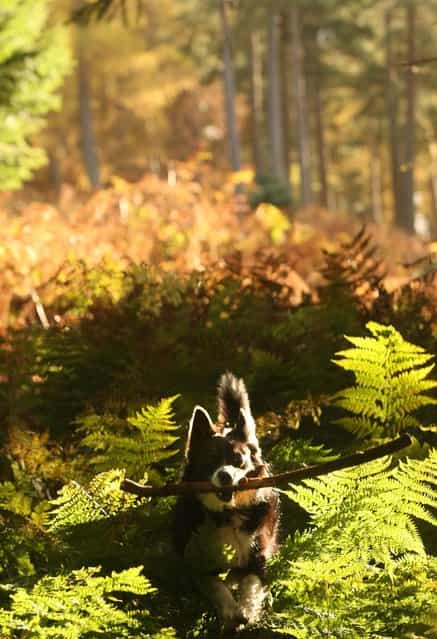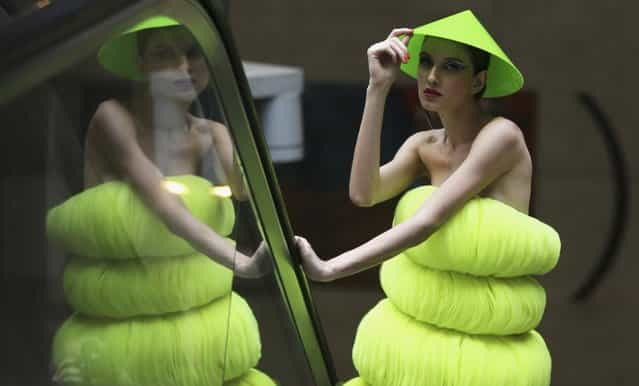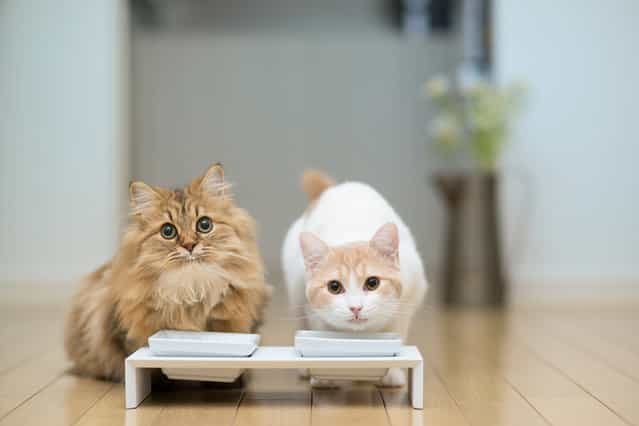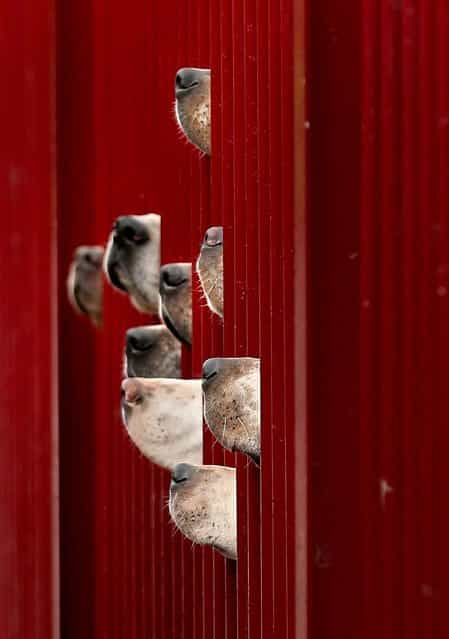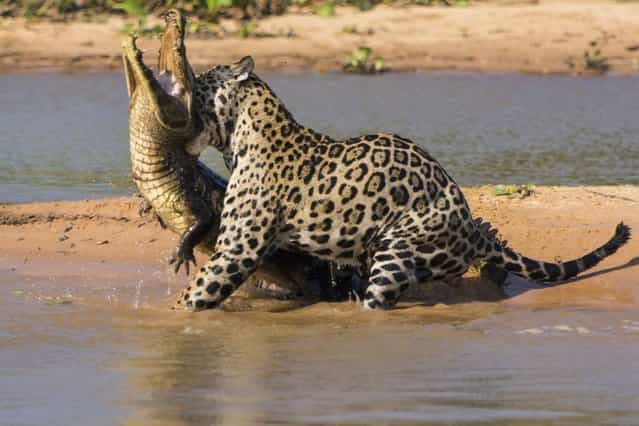World's First Lab-Grown Burger Tested in London
Advertisements:
[Professor Mark Post of Maastricht University in the Netherlands created the laboratory meat after years of research and a $330,000 donation from Sergey Brin, Google co-founder and entrepreneur. And on Monday a burger taste test took place with Chicago-based author and food writer Josh Schonwalk and Austrian food researcher Hanni Rutzler on Monday.
Testers said that overall the burger was edible, but descriptions of the taste and texture indicated they were left wanting. Food writer Schonwalk summed it up thus to NBC News: [I would say it is somewhere on the spectrum between a Boca Burger (veggie/soy burger) and McDonald’s. The absence of fat makes a big difference. It has the texture, which I was not expecting. It was like an animal-protein cake].
Despite a mediocre taste test, this event could eventually have a big impact on conventional meat production. The Food and Agriculture Organization predicts global meat consumption will double by 2050 as more people in developing countries can afford it. The demand for meat impacts not only animals, but also takes a toll on the environment. A study by the National Institute of Livestock and Grassland Science in Japan estimated that 2.2 pounds of beef is responsible for the equivalent amount of carbon dioxide emitted by the average European car every 155 miles, and burns enough energy to light a 100-watt bulb for nearly 20 days. This being the case, Post’s burger has some advocates excited.
PETA, the animal rights organization has already voiced its support for the lab-meat initiative. [Instead of the millions and billions (of animals) being slaughtered now, we could just clone a few cells to make burgers or chops,] said Ingrid Newkirk, PETA president and co-founder, in a statement. Post said his method would require only a stem cell contribution from animals, which could then be used to create 20,000 tons of cultured beef]. – Traci Oshiro via MSNBC
Testers said that overall the burger was edible, but descriptions of the taste and texture indicated they were left wanting. Food writer Schonwalk summed it up thus to NBC News: [I would say it is somewhere on the spectrum between a Boca Burger (veggie/soy burger) and McDonald’s. The absence of fat makes a big difference. It has the texture, which I was not expecting. It was like an animal-protein cake].
Despite a mediocre taste test, this event could eventually have a big impact on conventional meat production. The Food and Agriculture Organization predicts global meat consumption will double by 2050 as more people in developing countries can afford it. The demand for meat impacts not only animals, but also takes a toll on the environment. A study by the National Institute of Livestock and Grassland Science in Japan estimated that 2.2 pounds of beef is responsible for the equivalent amount of carbon dioxide emitted by the average European car every 155 miles, and burns enough energy to light a 100-watt bulb for nearly 20 days. This being the case, Post’s burger has some advocates excited.
PETA, the animal rights organization has already voiced its support for the lab-meat initiative. [Instead of the millions and billions (of animals) being slaughtered now, we could just clone a few cells to make burgers or chops,] said Ingrid Newkirk, PETA president and co-founder, in a statement. Post said his method would require only a stem cell contribution from animals, which could then be used to create 20,000 tons of cultured beef]. – Traci Oshiro via MSNBC
In this handout image provided by Ogilvy, a burger made from cultured beef, which has been developed by Professor Mark Post of Maastricht University in the Netherlands is shown to the media during a press conference on August 5, 2013 in London, England. Cultured Beef could help solve the coming food crisis and combat climate change with commercial production of Cultured Beef beginning within ten to twenty years. (Photo by David Parry via Getty Images)
In this handout image provided by Ogilvy, Chef Richard McGeown prepares a burger made from cultured beef, which has been developed by Professor Mark Post of Maastricht University in the Netherlands, at the world's first public tasting of the product on August 5, 2013 in London, England. (Photo by David Parry via Getty Images)
In this handout image provided by Ogilvy, Chef Richard McGeown (L) prepares a burger made from cultured beef, which has been developed by Professor Mark Post of Maastricht University in the Netherlands, (R) at the world's first public tasting of the product on August 5, 2013 in London, England. (Photo by David Parry via Getty Images)
In this handout image provided by Ogilvy, a burger made from cultured beef, which has been developed by Professor Mark Post of Maastricht University in the Netherlands, is prepared at the world's first public tasting of the product on August 5, 2013 in London, England. (Photo by David Parry via Getty Images)
In this handout image provided by Ogilvy, a burger made from cultured beef, which has been developed by Professor Mark Post of Maastricht University in the Netherlands (pictured) is shown to the media during a press conference on August 5, 2013 in London, England. (Photo by David Parry via Getty Images)
In this handout image provided by Ogilvy, a burger made from cultured beef, which has been developed by Professor Mark Post of Maastricht University in the Netherlands, is displayed at the world's first public tasting of the product on August 5, 2013 in London, England. (Photo by David Parry via Getty Images)
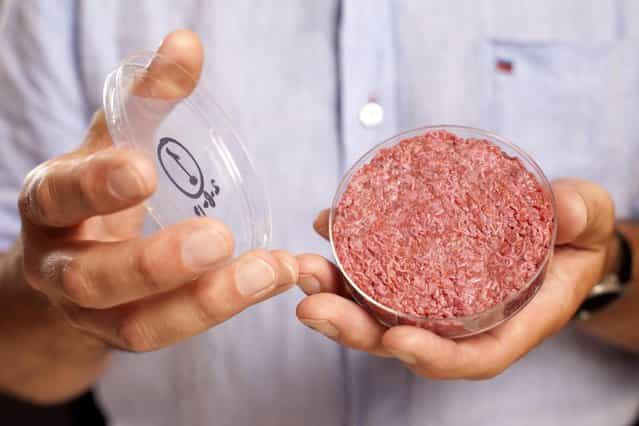
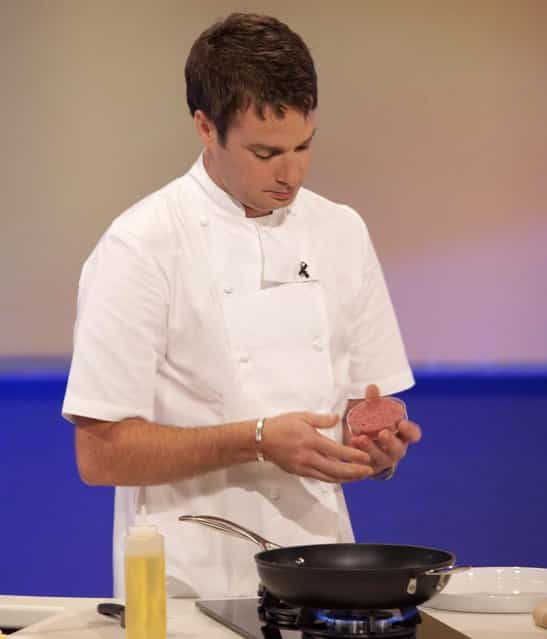
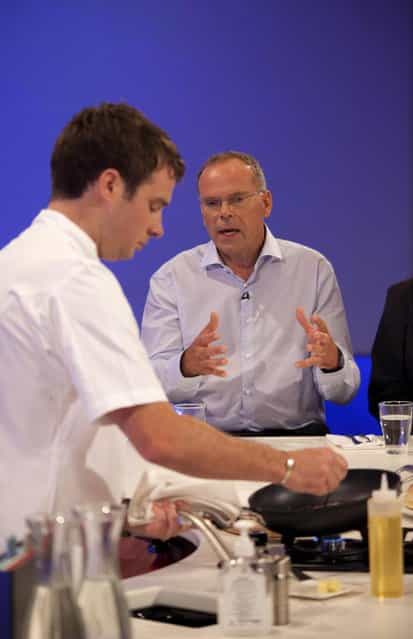
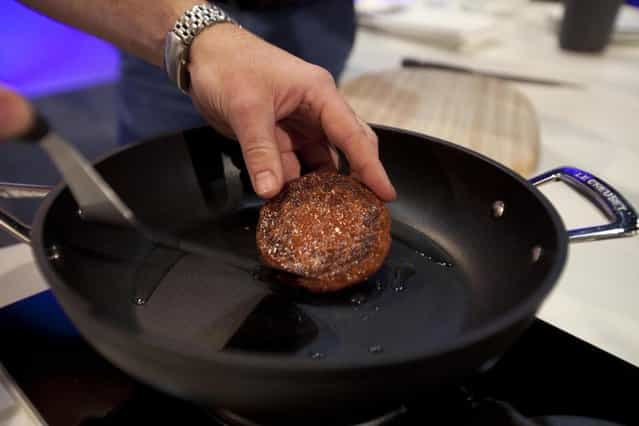
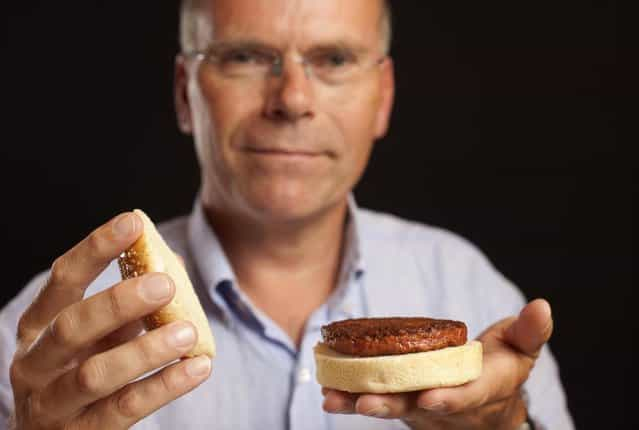
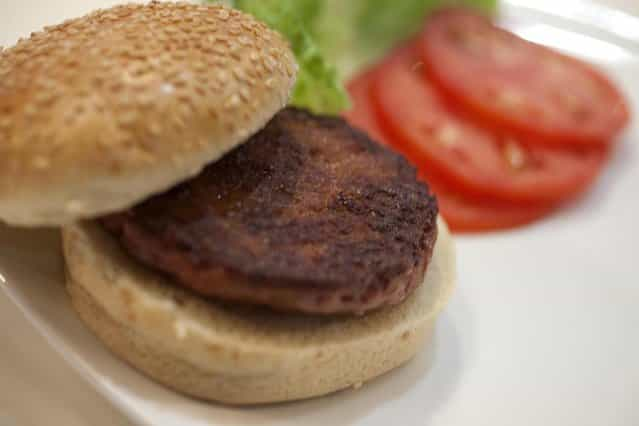
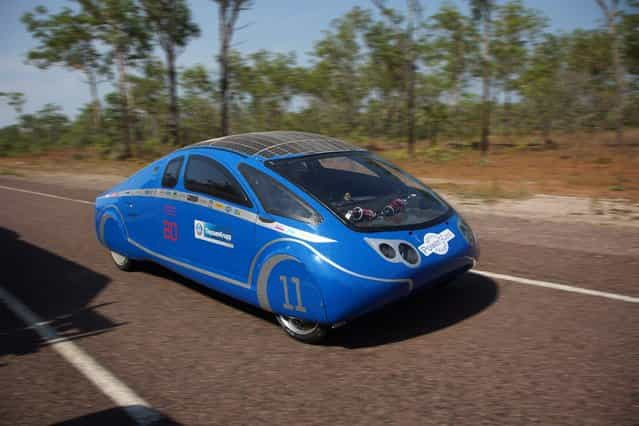

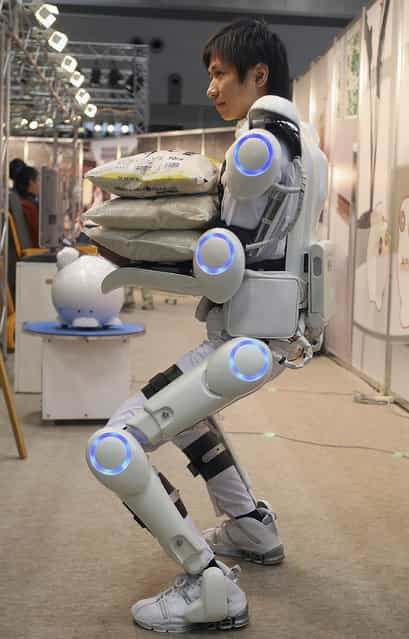
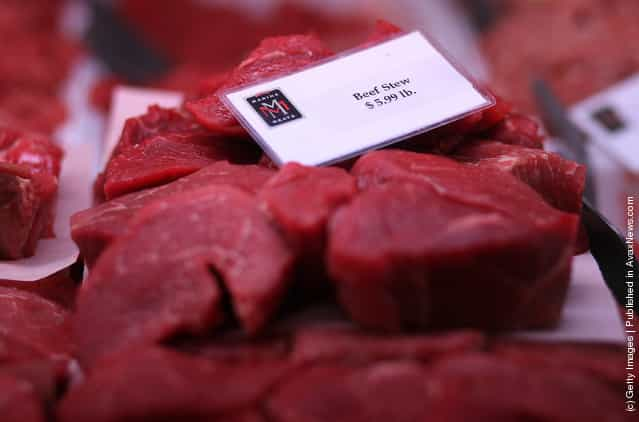
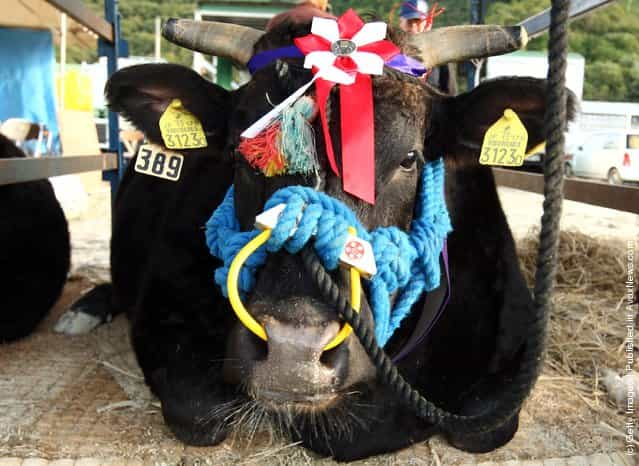

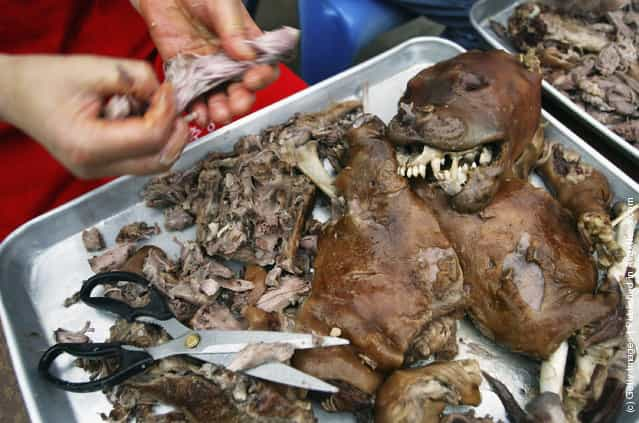


![Rare [Hybrid] Total Solar Eclipse Rare [Hybrid] Total Solar Eclipse](http://img.gagdaily.com/uploads/posts/fact/2013/short/00010c55_medium.jpg)

